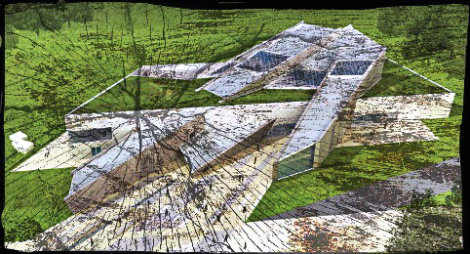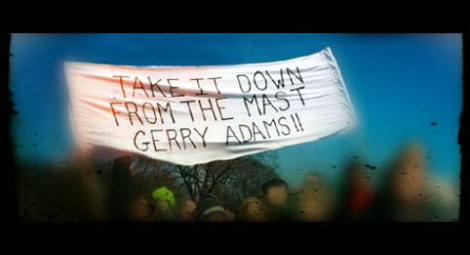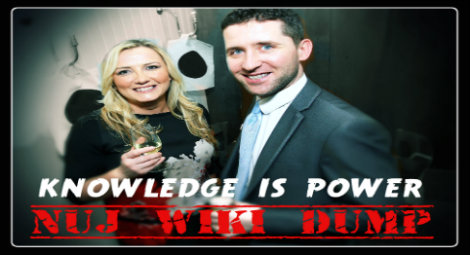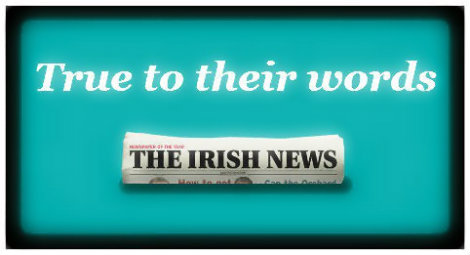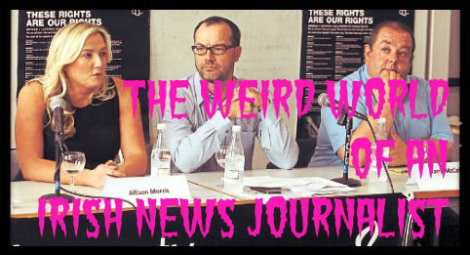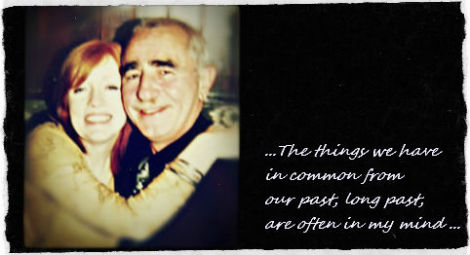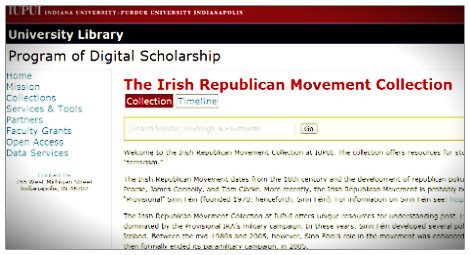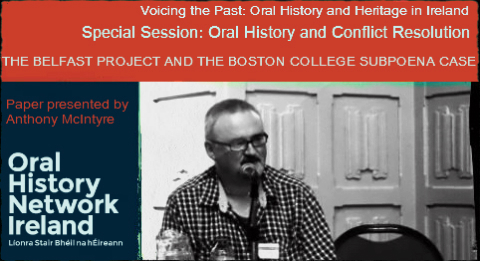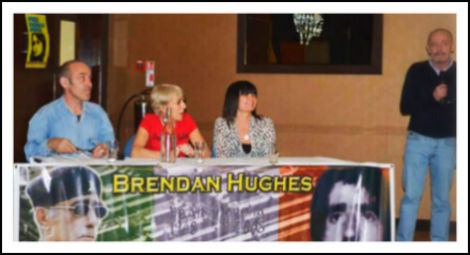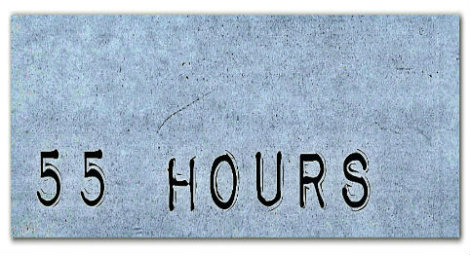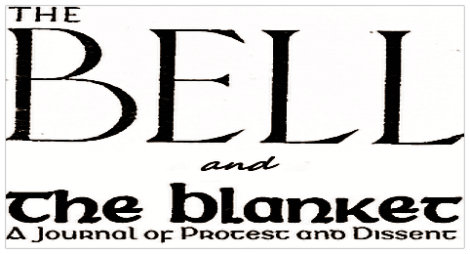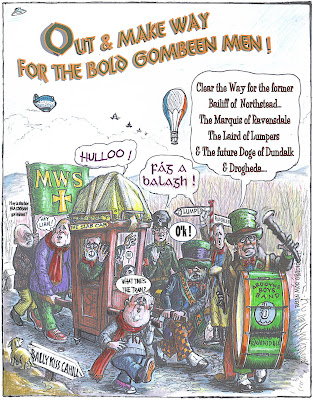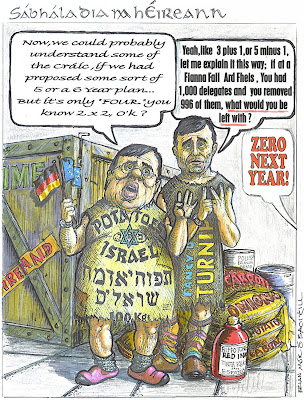Tonight The Pensive Quill features a short story by guest writer, Carrie Twomey
The Bombmakers
Seamie could have been twelve, maybe thirteen. He and his mates gathered in the back garden, the evening summer long. As usual, they had nothing much to do. One of his older brothers was in the kitchen, at the table with their ma, both of them smoking the evening away with languid gossip and chatter. Seamie didn't understand why his brother bothered with their ma. Their da and other brothers were away at the pub, drinking and playing pool. No one ever made the connection to the misery of the week, before the dole cheques came, with the drunken revelry of the weekend that often ended with someone's head getting busted. The pent up frustration of poverty — no food, no heat, everyone was expected to fend for himself and to make do with hand-me-down shoes, worn jumpers and never anything new — lent itself to rage that often exploded at home.
Some of his sisters had gone to the disco. Their escape was in the possibility of love, but it was more likely to come in sex. His youngest sister Maeve wanted to tag along with him. Being the youngest she had no fear and was more adventureous and typically romantic than her sisters. No harm to her, he thought, she could more than hold her own with his lot. He'd look after her anyway; she was his father's daughter. Seamie, protector — he puffed himself up with pride at the image of himself.
Seamie, Maeve and his mates gathered themselves and headed to their tiny kingdom, the Fort Na Gig Estates. Sometime ago, a supreme authority had deemed it more proper for the people to be housed in terrible, umpteen stories high complexes rather than the run down worn-in neighbourhoods they did live in, and the Housing Executive erected the Estates. Surprisingly enough, no one wanted to live in them, and the people who did end up there did not stay long. Squatters and winos and druggies took over and decent respectable people left. The edifice was set to be demolished soon, but the neighbouring kids deemed themselves first crack at destruction.
It was a great place to test bravery and foolhardiness, hardiness being the word; this was their way of metting out the hard men they would become. "Walk this ledge here," the ledge being 60 feet, though it seemed like 160 feet off the ground. "Walk it, don't run, dont cry and for chrissakes dont shite your pants," while they pelted each other with bricks and stones. "Just practising our aim, you see." Any fixtures or furniture that had been left behind were great for wrecking and smashing. Seamie pictured his da's screaming face filled with rage then pained surprise as he smashed a porcelain bowl to bits. "That'll shut you up yew oul bastard!" The refrain was familiar, all the mates growled one version or another as they worked away. They threw things at each other, as a silent test: who was the big sissy, who ducked out of the way? Who cared? They all were, hiding out here, taking out their rage and stymied frustration in the indigo twilight of broken windows. They took it out on inanimate objects instead of where the source really lay. As if they could face that source, or even name it. As if their fathers could.
The best part of their play came when they tired of the smashing, throwing and taunting and began collecting for their bonfire. They'd lazily search for bits of wood and the ancient blood in them would begin to stir, old memories whispering in their heads. They'd build their fire, and then, one by one as the mood took them, they'd tell stories and jokes, sing songs — bastardise popular songs really, and try to scare the shit out of each other with the ghost stories their older brothers would haunt them with after the lights were out. "Did you hear the one about the ol'widow who eats children? She was out of her mind with grief over the death of her husband, shot to death in her own front room by the gunmen, and she left with her wee'uns, and not knowing what to do, everyone coming over to the wake and she having nothing to serve and she BOILED THEM to make stew, and everyone thought it was the most lovely stew, but she couldnt live with herself, once she got her right senses back — which some might say she never did — and she offed herself, her whole family destroyed and she not remembering why nor how, and now, in her twisted grief, she hunts for more children to boil and so you should always wonder about your stew when it smells especially good..."
This was how lifelong friendships were formed.
The fire glow warmed Seamie's close cropped hair. He wanted to be like his older brothers so he kept his hair short. While his mother grieved over the lost beauty, his was fine hair with just enough wave in it to make the girls sigh, she also recognised the effiency of simplicity. She dreaded the day when he became cognisant of fashion. It was a good thing he wanted to be like his brothers, because his clothes were once theirs. Well-washed, they had acquired their own distinct colour, which went well with his pale skin. His body appeared inert and listless, but his eyes were ever vigilant and took everything in. While even the rest of his face gave way to boredom, sleepiness or fatigue, in his eyes a spark always flared. That was one thing that distinguished him from the rest of the city's roaming kids. His eyes would have spoken, had anyone been listening, but he was quiet.
Usually, when the talk around the fire had petered out or someone's sister came to gather them away home, that would be their night ended. Tonight something hung in the air, like smoke from a careless spy. It left its telltale sign, but no one knew yet what it was telling. Sparky made the first suggestion. "Let's add to our stash." And so they traded in their bardic image and became hunters. When their boredom didn't drive them to the satisfying target practice of smash-the-glass, they had quite a collection of milk bottles growing in an overlooked corner of one of the abandoned flats. It was Maeve who enlarged the net of the night. "Where do yous get the petrol?" Now a buzzing excitement lit the air. Did they tell her, or just go get some? Did they need any? Could they need any? A riot was always happening somewhere. And when one hadnt been sparked, there was always more than a few willing to give it a go. "You lot get started. We'll suss it out." Sparky volunteered himself, Seamie and Maeve. The group split up. Seamie, Sparky and Maeve headed up the road to look for the army patrol and the others went to siphon petrol from parked cars.
Sparky had the natural inclination of a leader. He had flaming ginger hair and hazel eyes that in the right light matched his hair. It looked as if his soul was on fire and escaping through his head. His father had been in jail three years now. He did have a lot of uncles to look after him but he missed his da. He would go through periods of prolific writing when he'd write his da pages and pages of letters. Then, when he resented that letters were the main contact he had with his father, he would stop writing altogether. He could never last too long without writing though, because he realised it should not be his da he punished and took his anger out on. That was part of where his leadership came from; he wanted his da to be proud of him, that he could handle himself out here on his own.
The three of them walked up the road at a leisurely pace. No real hurry, they'd allow the others time. As they walked they occasionally came across someone they knew. If Sparky deemed them sound, they'd tell them they were getting wired into it down the road. That way, Sparky reasoned, there'd be more people — maybe they'd even erect barricades. "I like it when the buses are on fire," Maeve said. "The shadows are so pretty."
They saw the army patrol before the patrol saw them. Their instinct was to crouch low and creep in the shadows, but that would have called attention to themselves. The patrol was at a crossroads. If the soldiers went on straight, they'd have to find a way to lure them back onto their road. That might make the soldiers more paranoid than they already were, and they'd probably call in for more back up sooner than they should for the plan to work. If they turned, they'd walk unknowingly straight into it. The kids would just have to circle round the streets to give fair warning to the others. The patrol turned onto their street. The three of them looked at each other and smiled. They crossed the road and went down the back alley way to the others.
The army gave Seamie nightmares. Sometimes he'd be at home in the evenings watching films with his da when one of his brothers would quietly bang into the house. None of them would say anything, but he could sense how tightly wound up they were as they hurried rigidly up the stairs. Beneath that he could sense the despair of the false security of the house being unable to offer any safety. His brothers would go up the stairs into the bedroom, sometimes the bathroom if the room was already occupied, and, shutting the door behind them, they'd slowly unlace themselves and start to sob.
Later they'd come down the stairs with wild stories and jokes about how they were stopped by an army patrol or at a checkpoint. Sometimes the stories would turn angry, but they never, ever, told of the humiliation and loss of dignity that drove them up the stairs.
Late at night, early in the morning, the army with black faces and heavy guns would bang and burst into the house. Bounding up the stairs they'd drag everyone out of bed — in their nightclothes or naked, grabbing at blankets — and hole everyone up in the front room under guard while they wrecked the place. They'd say things to their ma and taunt their sisters and no one could do a thing. All their furniture would be busted up. Walls were punched through, floors ripped up. After a few hours, they would leave: "You can take this reciept to the claims office, ma'am."
They'd sit in the gloom not saying anything to each other while their father stood outside like a volcano and their mother busied her anger cleaning up. The sun would come up and they'd get ready for school. When they came home there'd be no furniture, but the house would be clean.
Seamie, Maeve and Sparky joined their mates at the bottom of the road, and told them about the patrol headed towards them. Some older boys had joined them, making a barricade around the bend in the road so the patrol wouldn't clue onto the ambush right away and the rioters would have some protection. Others were making piles of bricks and stones. Someone had found a bunch of rags and quite a few petrol bombs were on the go, lined up, waiting to be lit. Somebody whistled. The army patrol came into sight.
It seemed everyone lit into them at once, as if they all sensed the need and opportunity to destroy the destroyer. Even a symbol of the destroyer would do. They started lobbing the bricks at the soldiers, taunting them as they did each other. One soldier yelled frantically into his radio as more people came barreling into the road. More older boys, and men, joined them as sirens of back up were heard rushing toward the scene. Binlids were banged, the neighbourhood version of the soldier's high tech radio, alerting the people to soldiers in the area and a riot in progress.
Seamie and Maeve were lighting the petrol bombs as they were being thrown. Maeve decided she wanted to throw her first. She lifted one and took careful aim. Seamie watched her as the arc of her arm curved and let fly at the nearest soldier. He grabbed her and held her to him as the bomb struck the soldier's face. "I want to see," she shouted into his thin frame. He pushed her further into his stomach as he watched slow motion the glass shatter on impact — where did she get such force? The petrol leaked over the soldier's face and into his clothes, adding sting to the gashes the glass, like shrapnel, made: sting the soldier didn't feel very long as the fire licked the petrol and exploded. "I want to see," she howled again, beating him with her fists. She should finally see the damage she could do, the pretty shadows of her creation. Seamie held onto her, as the soldier became a shadow in the flames eating him, his movements like a dancing bear in a halo of orange. He closed his eyes and held her, and everything went away. All the sounds: the screams and whoops, bangs and booms, thuds, explosions; the guns firing plastic bullets into the crowd, the women banging their lids, the shots fired sproadically. The smells: of fear and tension and rage, of petrol and fire and guns, burning tires, cars, and flesh. And the sight. The twisted shadows the flames made. The screaming children. The angry boys. The men with the woolly faces. All gone. He held Maeve and he felt transported to another world of long ago. Just the two of them. Another time, another riot, another war they'd escaped from. He closed his eyes tighter. "I want to see!" Maeve pushed herself from him but she could not see where her bomb had landed. Too many things were lit, aglow. He said he needed some water. She looked at him, took his outstretched hand. They started walking. She was his father's daughter. She could hold her own with his lot, but he'd be there, protector.













